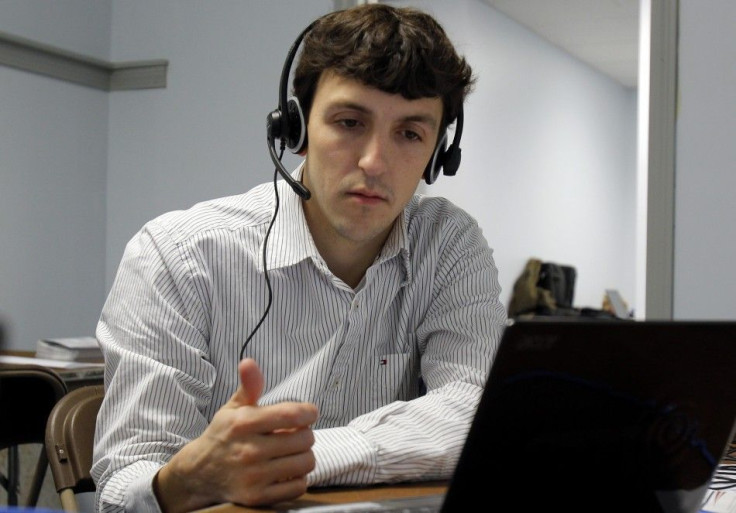Newt Gingrich's Granite State Team Works on Its Ground Game

As Newt Gingrich surged from an also-ran to a front-runner in the race for the Republican presidential nomination, he put a 29-year-old newcomer in as quarterback of his New Hampshire campaign team.
It was Oct. 21, when the former speaker of the U.S. House of Representatives was way behind in the Granite State's Jan. 10 primary race and few believed he had a chance to win the Republican nomination to challenge President Barack Obama next November.
Newt told me, 'You own New Hampshire. When in doubt, charge,' said Andrew Hemingway, director of Gingrich's New Hampshire campaign, exuding an easy confidence much like his candidate does on the campaign trail.
For the Gingrich camp, any charge in New Hampshire might seem like an assault on the citadel. Chief rival Mitt Romney has had an extensive organization in place there for months.
A former governor of neighboring Massachusetts, Romney kept in contact with his New Hampshire supporters after his failed run for the nomination in 2008, enabling him to crank up a political machine as soon as he formally announced in June he was seeking the 2012 nomination.
Compared with Romney's organization, or ground game, in New Hampshire, the Gingrich camp is thin and hastily assembled. Hemingway has never played a formal role in a presidential campaign before.
We're going on instinct, Hemingway said from the campaign's storefront office next to the Castro's Back Room cigar shop in central Manchester.
Romney's campaign machine might give him an edge as polls tighten leading up to the first voting of the 2012 election season, which kicks off in Iowa on Jan 3.
A Suffolk University poll shows Romney still in first place with 38 percent in New Hampshire and Gingrich in second place with 20 percent there, despite the latter's 6-percentage-point rise in a month.
Our ground game is second to none in New Hampshire, said Romney representative Ryan Williams. We're running a traditional, door-to-door, person-to-person, grassroots campaign.
The Romney team lists impressive numbers that show the scope of its ground game in New Hampshire: 230,000 voter contact calls made, some 30,000 doors knocked on, more than 11,000 yard signs distributed, and 100-plus endorsements from local elected officials.
Hemingway acknowledged lacking the resources his counterparts enjoy.
I don't have any of that stuff, Hemingway said. Somebody once asked me what my internals were telling me. What is that? Your internal polling. What internal polling? he said, in reference to opinion polls done solely for a campaign's own information.
More is at stake for Romney in the state. A defeat in his home region of New England would be a crushing embarrassment and could end his bid for the nomination.
Gingrich Challenged
Gingrich faces similar organizational challenges in states that hold their nominating contests later in the year.
In Iowa, whose caucuses are set for Jan. 3, another leading candidate, U.S. Rep. Ron Paul of Texas, has an army of enthusiastic supporters who are way ahead of Gingrich's campaign in terms of organization as Paul creeps up in the polls behind the former House speaker.
The Gingrich operation is attempting to rebuild in a hurry after many members of his staff resigned en masse in June, when Gingrich was buried in the polls. Senior staff were upset that he took a Greek island cruise with his wife instead of campaigning.
Despite being behind in New Hampshire, the Gingrich camp has identified 65,000 undecided voters it believes can be swayed its way. Hemingway has appointed captains in each of the state's 10 counties plus 30 more in major cities. The campaign has phone banks each night and a program to knock on doors and take voters to the polls.
The reality is we just opened our office on November 11, Hemingway said. We're leveraging as much grassroots, as much social media, as much technology as we possibly can. I don't think we have the luxury of going through and saying we'd like to meet every voter five times and know what their issue is. We're working on that, but the reality is time is pressing against us.
The traditional ground game is a high-stakes orchestration that requires a small paid staff to direct hundreds of volunteers, creating databases on voters gleaned from public records and commercial marketing techniques, and connections to local politicians to tap into their support networks.
Ground games require phone banks that help campaigns identify which candidates voters are likely to support, which are most likely to vote, which issues are most important to them -- and then to remind them to vote on Election Day.
You have to set it up in advance. It's not sexy. It's not a guarantee you will win, said Andy Smith, director of the University of New Hampshire Survey Center.
If a candidate is not popular, if he really steps in it, the best organization in the world is not going to put him over the top. It does mean in a close race he is more likely to get his people to the polls, Smith said.
(Editing by Alistair Bell and Vicki Allen)
© Copyright Thomson Reuters 2024. All rights reserved.






















